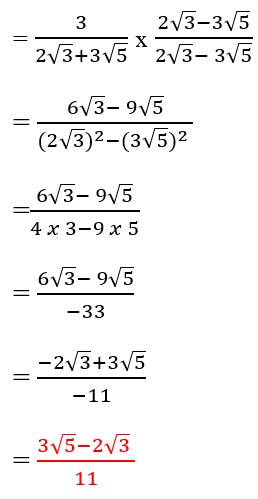Create an account / login to help track your progress and unlock more features including additional notes, rapid quizzes, revision questions, virtual library, and the new Esoma Classroom
Surds
A surd can be described as a root whose exact value cannot be found. It is an example of an irrational number; a number which cannot be expressed in the form:

In getting the value of a surd, the decimal number obtained is neither recurring nor terminating.
Consider:
√2, √3, √5, √6



